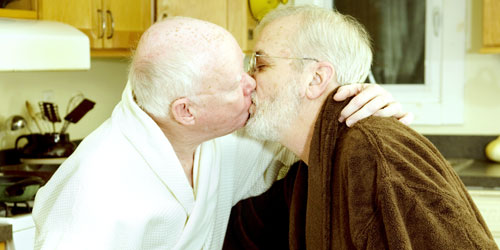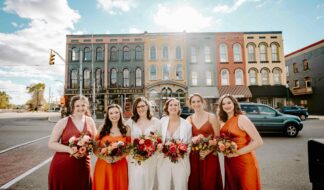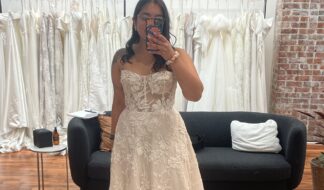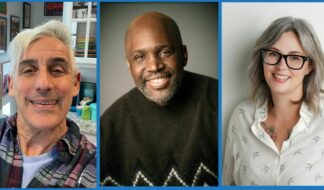
What is your sexual orientation? What is your gender identity? Do you have a spouse or partner? Do you need care providers who are sensitive to the needs of LGBT people?
These kinds of questions have historically not been asked of older adults as they fill out paperwork for assistance, or by counselors and case managers who are there to help them find care. But thanks to the Area Agency on Aging 1B, these questions are being asked by dozens of specialists who work to connect seniors to services in southeast Michigan.
They're questions with the potential to unnerve some older adults, who grew up in a time when many gay people stayed in the closet and others of their generation may still prefer they be there. But by identifying these individuals and their needs, it can mean better service and a better quality of life for those who need to know that they won't be mistreated because of who they are.
"It's not a question we have asked. But even the fact that we're asking may make people feel more comfortable," said Andrea Layman, director of network development for the Area Agency on Aging 1B. The agency serves as a hub for more than 435,000 persons age 60 and older residing in Livingston, Macomb, Monroe, Oakland, St. Clair and Washtenaw counties. They also work with care providers and put state and federal funds to work in ways that help the aging population.
The agency has taken a bold lead in making sure that diverse populations are served, including the LGBT community. Former employee Natalie Pearce has left the agency to become the first certified LGBT competency trainer in Michigan, and folks like Layman have carried on her work within the organization. Pearce recently reunited with the Agency to conduct training.
"We had the care management staff of 70 nurses that work one-on-one with our clients who go through the LGBT competency training," Layman said. "A lot of people came into it not sure what they were doing there, but left saying 'oh, I get it now.' They understand and they're excited to go back out and help people."
Layman said that even before the training, "generally the Senior Provider Network has been really open to serving the (LGBT) community," and now the training has solidified the effort. There are currently no funds specifically allocated to reach out to LGBT seniors, though Laymen hopes that direct funding may be coming.
"The Older Americans Act guides agencies nationwide," she said. "We think it may be coming, that they will be included as an underserved community." Currently the government allows for outreach to underserved populations such as racial minorities and people with low income. If LGBT can be added as a target demographic, it can mean more funding for outreach and training nationwide.
In June the Agency was part of a workshop that brought in Aaron Tax from SAGE (Services and Advocacy for GLBT Elders), a national organization, to talk about the Older Americans Act and how this can be good for the community.
"Many LGBT adults are afraid to engage with the programs," Tax told BTL in June. "This will say you have to make efforts to reach out to the LGBT community. They have to know what is available and they have to be able to access these services." Tax said there are 600 areas on aging and 20,000 service providers spread throughout the country. "This little change of the law will have a big impact," he said. He also called for funding to do data collection from LGBT clients. "Data drives funding," he said."Plus how can you know if you are meeting the needs of a community if you don't ask them?"
Layman said her agency will continue looking for ways to be proactive. "Our responsibility is to help all older adults get the resources they need to be active in their community. We want an agency that members of the LGBT community can feel comfortable with. We know that there are years of disconnection for people, and that people who are in this generation have fears. They don't want to go back in the closet."
In addition to the training, the Area Agency on Aging 1B has started asking about sexual orientation and gender identity as part of their intake process. This will help them get a better picture of the size of the population that is seeking out services, in addition to letting clients know that it's okay to be themselves. They have changed their nondiscrimination statement to include sexual orientation and gender expression.
The Agency continues to be one of the main groups involved with the Older Adult Coalition, which is a collaboration of people and organizations in southeastern Michigan who are working to establish effective programs and services for lesbian, gay, bisexual and transgender older adults. It is hosted by the ACLU of Michigan and is supported by a grant from the HOPE Fund.
Participating representatives attend from the ACLU of Michigan, Advisory Council to Michigan's Commission on Aging, Adult Well-Being Services, Affirmations, Area Agency on Aging 1-B, KICK, Citizens for Better Care, The Jim Toy Community Center, Oakland Family Services, and The Village of Redford.
Meetings are open to any and all interested parties, and are generally scheduled for the 3rd Wednesday of every month. For more information or to verify meeting dates, please contact Jay Kaplan at the ACLU, [email protected].










